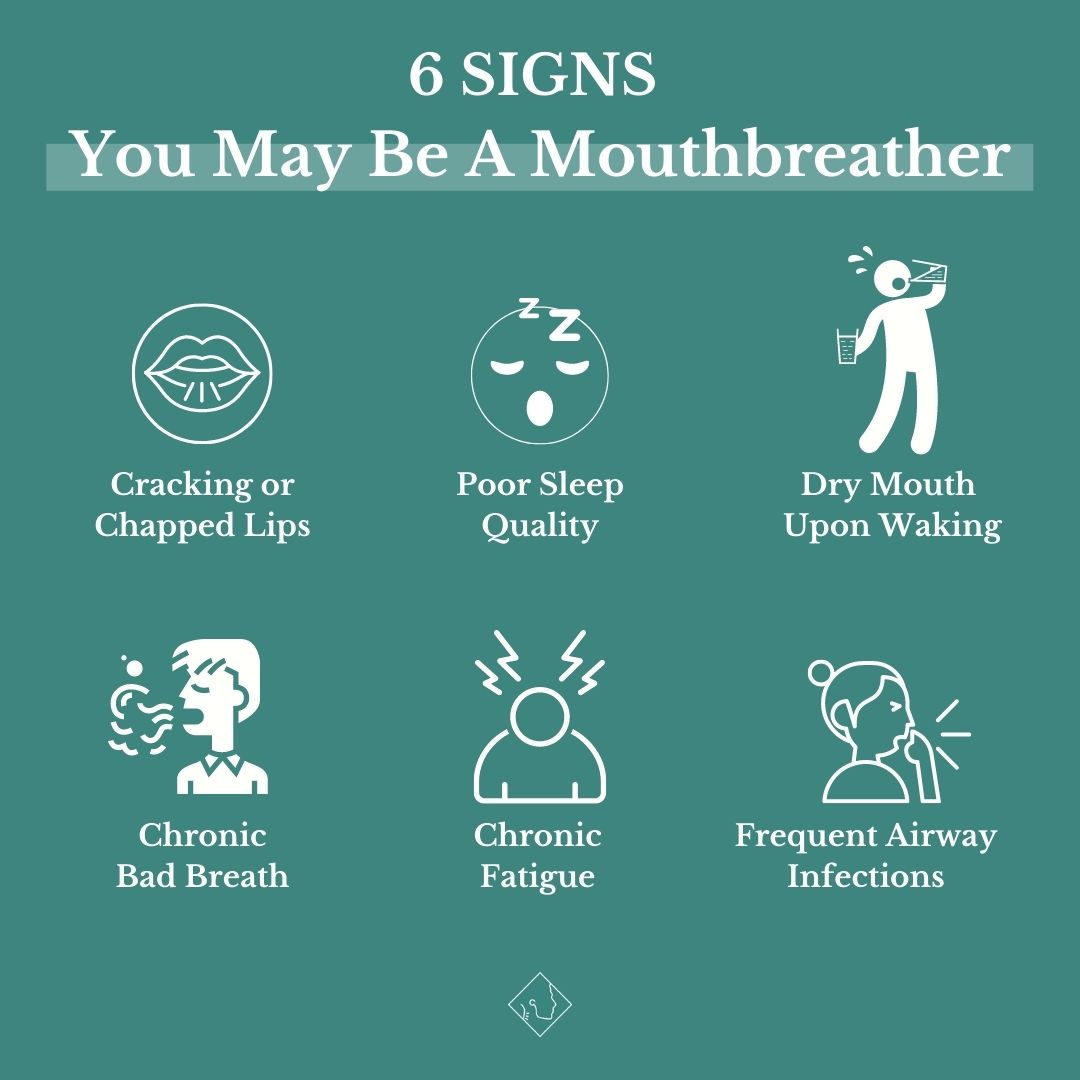What Is Mouth Breathing?
Mouths are designed for eating, chewing, ingestion, and communication whereas the nose is meant for breathing. When we can’t get enough air through the nose, the mouth begins to take over. This in turn forces us to breathe through the mouth out of necessity and, if not corrected, can be a lifelong habit that can cause health problems. Mouth breathing and having an open mouth are identified as basically the same thing and both equally detrimental to long-term health.
What Causes Mouth Breathing?
 Allergies and/or food sensitivities
Allergies and/or food sensitivities Enlarged tonsils or adenoids
Enlarged tonsils or adenoids Chronic nasal congestion
Chronic nasal congestion Respiratory infection
Respiratory infection Asthma
Asthma Deviated septum
Deviated septum Nasal polyps
Nasal polyps
The body was designed for nasal breathing. It filters the air you breathe and removes dust mites from the body in 15 minutes. It regulates the amount of oxygen you take in and causes the tongue to rest on the roof of the mouth. It also can help lower allergies and reduce the number of colds you get. Whereas when you breathe through your mouth, you over-breathe, which can throw off the balance of oxygen and carbon dioxide needed for the body to function properly. This dysfunction caused by the imbalance is known as hyperventilation and it can cause all types of health problems in the body.
How can Myofunctional Therapy Help?
For someone who habitually breathes through their mouth, changing to nasal breathing isn’t that easy. The body no longer knows how to breathe normally, so the muscles surrounding the face and mouth have adapted and learned to work incorrectly. Working with a myofunctional therapist can help to correct those habits and train you to breathe through your nose. The changes to your health and quality of life can be astounding.


- Underdeveloped jaws
- Changes to facial appearance
- Bad breath
- Stomach pain and problems
- Problems with braces and dental treatment
- Delayed speech and language development in children
- ADD and ADHD-like symptoms in children
Specific causes of mouth breathing can include:
- Food sensitivities and allergies
- Enlarged tonsils or adenoids
- Chronic nasal congestion
- Respiratory infection
- Asthma
- Deviated septum
- Nasal polyps
Each of these issues can make it difficult or impossible for a person to breathe through their nose, and when this happens, their only option is to breathe through their mouth. If this isn’t corrected, it can become a habit that’s set for life.

 Allergies and/or food sensitivities
Allergies and/or food sensitivities